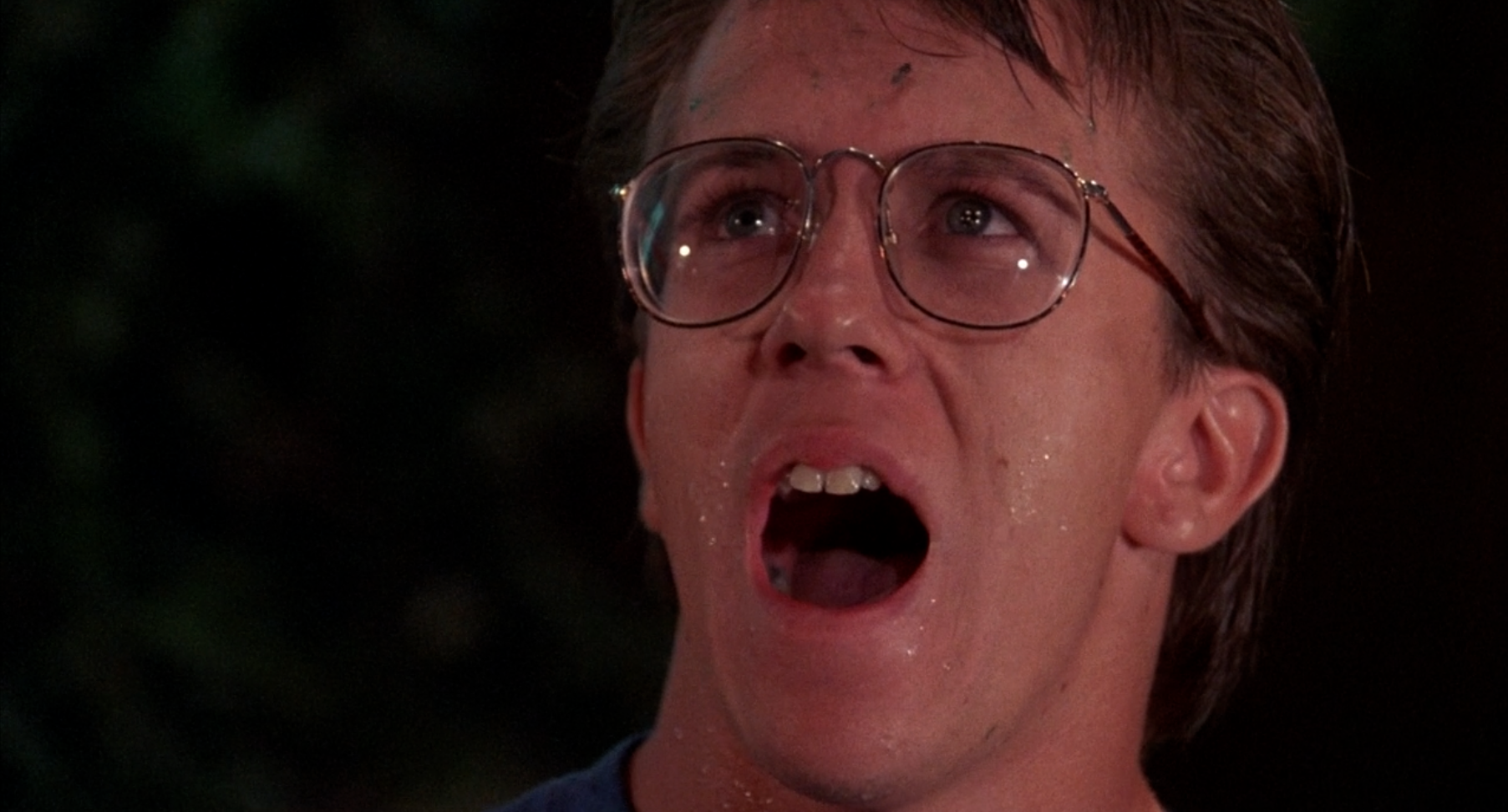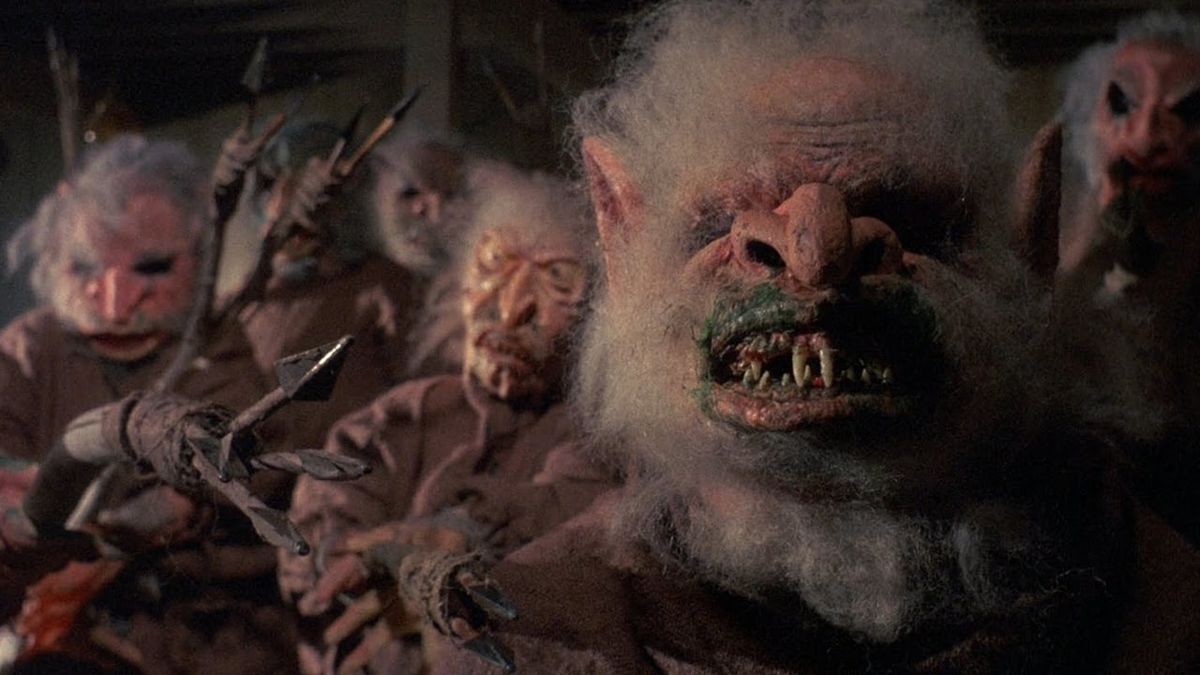Sometimes a film comes along so inept, so guileless in its ambition and so transcendently incompetent, that it explodes all the boundaries of ordinary badness and backflips, grinning, into the rarefied territory of cult ecstasy. Troll 2 is that kind of movie: a raucous spectacle of misjudgment that plays like a séance held for the art of scriptwriting—boisterous, deluded, and more fun than most of what shuffles out of the Hollywood Dream Factory on a Friday night.
Was there ever a plot so giddily misconceived? A family swaps suburban peace for the stickly green menace of Nilbog (yes, “goblin” spelled backwards, in case you need a hint), only to be menaced by what can best be described as unionized garden gnomes in sackcloth. These goblins don’t eat flesh—they’re strictly vegetarian, a bit of nutritional irony that the filmmakers treat with all the subtlety of a vegan riot at a steakhouse. Here, monsters lure their victims not with primal terror but with a Tupperware party and a bowl of kale pesto. If Kafka had written “Hansel and Gretel” after dieting too long, it might have felt like this.
At the story’s shattered, leafy core is little Joshua Waits (Michael Stephenson), who turns in the sort of guileless childhood performance that’s less “childhood trauma” and more “Did I leave the stove on?” He’s stalked not only by goblins but by his grandfather’s ghost, who lingers, Shakespearian but senile, to deliver mystical warnings and plot crutches with the portentousness of a man whispering the winning lottery numbers—if only he could remember them. Meanwhile, George Hardy as the patriarch, Michael, is forever on the wrong page, marching through the film with the exasperation of a dentist beset by talking molars.

Let’s not be precious about it: the acting is lawn-ornament wooden. Dialogue flounders, stubbed out line by line as if on a cold morning, words hovering and then dropping limply to the carpet. Earnestness is everywhere, wit nowhere. Who could forget the immortal “Oh my God!”—delivered not with horror, not even with surprise, but with the bug-eyed amazement of a child discovering broccoli for the first time and deciding, mid-scream, that humanity is doomed.
And the goblins! Oh, these goblins. If you’ve ever wondered what an avant-garde kindergarten production of Macbeth would look like, here’s your answer: paper mache masks drooping, eyeholes punched by garden shears, potato sacks painted “forest green” at a fifty-percent-off sale, and a choreography of galumphing that owes more to soup kitchen queues than to the traditions of classic horror. Production values here operate at a level that makes Ed Wood look like David Lean.
But the real marvel is the tone—that delirious, teetering balance between accidental farce and attempted terror, a succession of scenes that veer with the assurance of a bumper car manned by a narcoleptic. When a corn cob is wielded as an instrument of seduction, all pretense of narrative order shatters and what’s left is pure, undiluted Dada. If the history of erotic food scenes included Freudian readings of Tom Jones and 9 1/2 Weeks, this film stands alone in its cheerful obliviousness, mixing kernels and carnality and popping every last brain cell on hand.
The soundtrack—the chintziest synths this side of a 90’s infomercial—washes over the action, part soap opera, part whiffle ball. The static camerawork, the editing that reacts to narrative like an allergic attack, and lighting chosen seemingly at random from the local hardware store: here the technical flubs are not mere accidents, they are statements of principle. This isn’t so much outsider art as it is a call for a new, untamed genre—vegetarian surrealism, perhaps.
Troll 2 has a peculiar, democratic generosity. Ridicule all you wish, but it’d be silly to deny how ecstatically the movie embraces its own nonsense. Cynicism is for studio products; this is sincerity weaponized, a home movie of our stranger dreams, made by people who, by all evidence, don’t quite know what a “movie” is but love the idea that they might have made one. There is a giddy, indiscriminate pleasure here, a feverish conviction that feels like a child’s hand-puppets have broken into the silver screen after hours.
When you stumble, stifling your cackles, out of Troll 2, you are not so much elevated as uprooted. The world of sensible film—of arcs, gravitas, subtext and subtlety—seems distant, parched. Never mind that this thing has all the coherence of a bedtime story interrupted by three fire alarms and a clown car. Cinema, in Troll 2, is not killed—it’s upended, hoisted high in gloved goblin hands, and paraded, grinning, for our everlasting amusement.
If you’ve tired of studio polish, of hollow homages and committee-crafted drivel, you owe it to yourself to brave Nilbog. It’s as close as you’ll ever come to watching a movie dream itself, costume and all, into legend. Eat your greens, or they might just eat you first.


